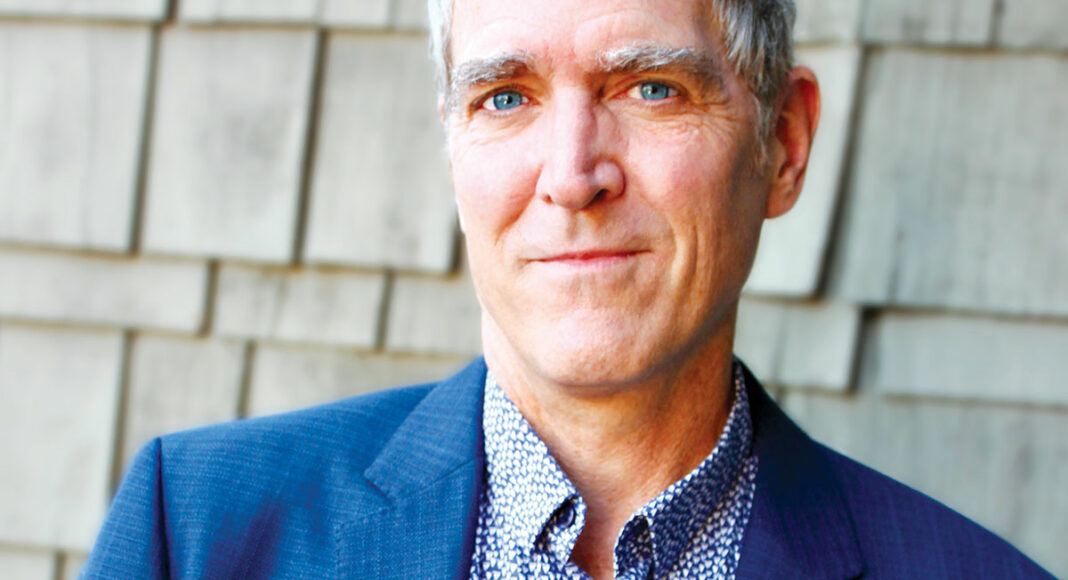Michael Mechanic was a reporter and then news editor for Metro Santa Cruz back in the 1990s, played in the local band Junk Sick Dawn and, after a stint in journalism school, moved back to the Bay Area.
Mechanic spent several years as managing editor of the East Bay Express, a gig that led to his current position as senior editor at Mother Jones—where he’s been for the past 13 years. Mechanic’s new book, Jackpot: How the Super-Rich Really Live and How Their Wealth Harms Us All, tracks the lives of mozillionaires, from the barely imaginable lifestyles to the moral quandaries.
Briefly, trace the path that led to your new book.
MICHAEL MECHANIC: A New York literary agent called me out of the blue to ask whether I’d ever considered writing a book. Jackpot had been on my back burner for ages. Even so, it took me a couple of years to do the proposal. I’m glad I put it off, because the book is more timely now.
The book explores how vast wealth affects its recipients and their choices and behavior. Did you come in with certain stereotypes about the wealthy?
I try to avoid preconceptions. But there’s definitely something to rich folks never feeling they have enough money to be financially secure. And then there’s the “bubble”—the notion that rich people form these exclusive communities in which discussing one’s yacht and house in Aspen seems completely normal. I think that contributes to the stereotype of the rich being out of touch.
In one chapter, you explore philanthropy as tax-avoidant reputation laundering. This contradicts our popular myth that the mega-rich are doing good through their charitable work.
Not all giving is self-serving, clearly, but philanthropy has those aspects. Members of the Sackler clan pushed opioids they knew were killing people, even as the family and Purdue Pharma curried favor by donating millions to universities and cultural institutions. Jeffrey Epstein used philanthropy to distract from his pedophilia. We also subsidize charitable giving with generous tax breaks, whether or not that giving aligns with society’s needs and values. And ‘Big Philanthropy,’ as we practice it, is undemocratic. It gives the super-rich undue influence in our lives with very little public accountability.
What is wealth segregation, and is it real?
Very real. It’s the tendency of people to cluster by socioeconomic status, maybe because they want to live in nicer neighborhoods with better schools, etc., but also because doing so is less socially awkward. You get more of it in regions with high economic inequality, so all the poor live over here, the rich over there, and fewer and fewer people live in mixed-wealth neighborhoods. This so-called income segregation—like racial segregation—tears at the fabric of a community. It leaves us with less compassion for people on the other side of the tracks.
Did you notice significant differences in the attitudes toward their fortunes on the part of heirs versus people who created wealth?
Yes. My wealth creators sometimes felt conflicted, but seldom as conflicted as the inheritors, who did nothing to deserve their fortune. I’m sure some inheritors feel very entitled, but the ones I met were kind of ambivalent, or even anxious, about their wealth.
You spent almost two years talking to people who’d won the metaphorical jackpot. Were they inevitably corrupted by sudden wealth?
I wouldn’t say “corrupted.” People who come into wealth do often feel, as one subject put it, “unmoored”—kind of lost and striving for meaning. But several sources who knew Jeff Bezos before and after he got insanely rich told me the money changed him. How could it not? When you have that much, society treats you transactionally, you have no time, and it’s hard to trust anyone. You probably think you’re hot shit, too.
Is it a moral outrage that mega-billionaires like Jeff Bezos, Elon Musk, and Bill Gates exist?
I think so. The public sector created the conditions that enabled these guys to build their empires, and our laws helped their wealth grow as fast as it has. A tax code is a moral document—ideally, it’s an expression of the public’s priorities, but ours is corrupted. Tesla wouldn’t be profitable without huge government subsidies. And Amazon, from 2009 through 2018, paid an average effective tax of about 3% on $26.5 billion in profits. The IRS takes more from workers’ wages than it does from the passive gains of big investors. That isn’t right. We should absolutely reward innovation and invention, but the scale of these rewards has gotten ridiculous.
Did you ever feel like a Dickensian urchin—secretly envying the lives of your informants?
I once played a member of Fagin’s gang in Oliver! But no, not really. I’d love a swimming pool and a house with big, beautiful gardens and ponds and horses and unicorns. But all that stuff requires lots of time and upkeep. I’d probably be happier if I just Airbnb’d it.
Michael Mechanic discusses his new book, ‘Jackpot: How the Super-Rich Really Live,’ published this month by Simon & Schuster, in a free virtual event presented by Bookshop Santa Cruz on Thursday, April 15, at 7pm. For more information, go to bookshopsantacruz.com/jackpot. To register for the event, visit crowdcast.io/e/jackpot.













